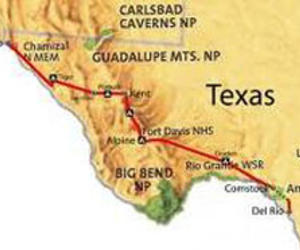Cuba spy's trial seen as U.S. maneuver
- Submitted by: manso
- Editorial Articles
- 01 / 13 / 2011

The U.S. chose not to deport Luis Posada Carriles for fear the former CIA operative may reveal secrets, Havana says.
Nonetheless, Cuba has provided the U.S. with data on attacks in which Posada allegedly had a role.
By Carol J. Williams, Los Angeles Times. January 13, 2011.Befitting a lifelong intelligence operative, Luis Posada Carriles is a name unknown to most in the United States.
But the 82-year-old now on trial in El Paso spent the last 50 years trying to topple Cuban leader Fidel Castro, gaining notoriety in Latin America as "the Bin Laden of the Americas" for his alleged role in blowing up a civilian airliner and bombing Havana hotels.
Posada isn't charged with terrorism, despite reported admissions of complicity in the deadly attacks on his Cuban homeland and numerous assassination attempts against Castro. The charges he faces in Texas are for lying to federal authorities when he applied for U.S. citizenship five years ago.
Cuba's state-run media have cast the trial as a U.S. government maneuver to shield the former CIA operative from extradition to Venezuela, where he is wanted for the 1976 midair bombing of a Cubana flight in which all 73 on board perished.
The U.S. government's failure, until this week, to bring Posada to justice has been a major point of contention between Havana and Washington, especially in the aftermath of the Sept. 11, 2001, terrorist attacks and a trial the previous year that sent five Cuban men to long jail terms for being unregistered agents.
Some analysts of the troubled U.S-Cuban relationship believe the trial of Posada, despite the peripheral charges of perjury, obstruction and naturalization fraud, presents an opportunity for the long-feuding neighbors to improve relations.
Cuban officials have provided unprecedented cooperation in the case, sharing thousands of documents amassed in their investigation of the hotel bombings that killed an Italian visitor in 1997, said Peter Kornbluh, head of the Cuba documentation project at the independent National Security Archive at George Washington University. Two police investigators from Havana are expected to testify at the trial.
"Cuban agents have decided this is an opportunity to put their Public Enemy No. 1 behind bars," Kornbluh said of the help being provided. "They want to show they are capable of being partners in counter-terrorism efforts and that they don't belong on the State Department's list of states that sponsor terrorism."
Because of the highly politicized espionage case and Havana's relations with other nations on the U.S. diplomatic black list, Cuba has been excluded from normal U.S. travel, trade and official contacts.
To encourage reconciliation, the Obama administration should remove Cuba from the sponsors-of-terrorism list, "where it doesn't belong anyway," Kornbluh said.
FBI documents related to the hotel bombing fatality, and a tape-recorded interview with the New York Times in which Posada reportedly boasts of organizing the attacks in Havana, are expected to be introduced at the trial as evidence he perjured himself when asked about the incidents by U.S. officials.
As U.S. District Judge Kathleen Cardone spent the first days of this week seating a jury, Cuba's official Granma daily continued to cast the trial as Washington's effort to protect an intelligence asset who could reveal embarrassing secrets about the CIA's role in dubious foreign operations during the Cold War.
"Some sources assert that this judicial process reveals the double standard of the United States government on the issue of terrorism, and claim that taking Posada Carriles to trial for his terrorist actions would become a problem for that government," Granma said.
Jose Pertierra, the lawyer representing Venezuela in its extradition effort, told Cuba's Prensa Latina news agency that "many are the interests in Washington to prevent Posada Carriles from being tried for something serious or deported."
A U.S. immigration judge ordered Posada deported in 2005 for illegally entering the United States after his pardon and release from a Panama prison sentence for plotting to assassinate Castro there in 2000. But the judge ruled that Posada couldn't be sent to Cuba or Venezuela, due to concerns he could be tortured, and no other country would take him.
[email protected]
Source: www.latimes.com/news/nationworld/nation/la-na-0113-posada-20110113,0,707...
Comments